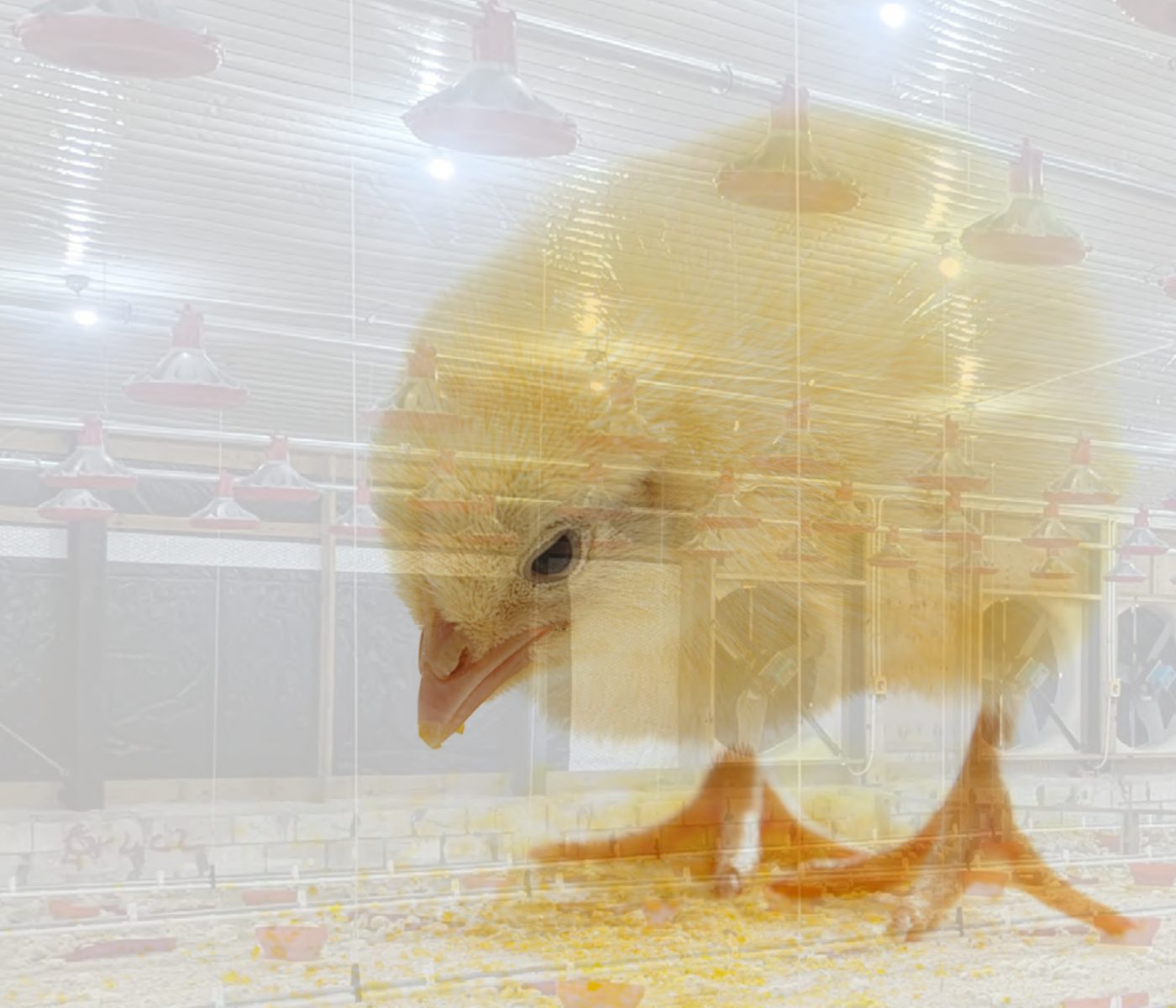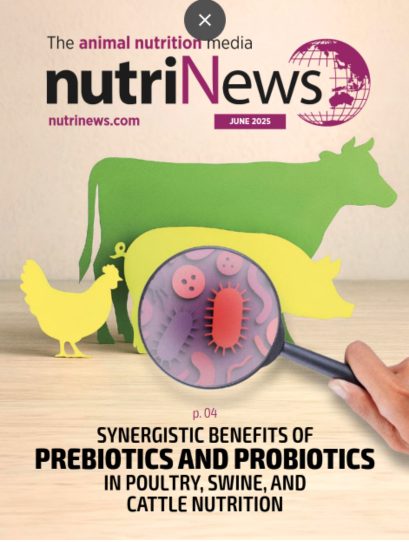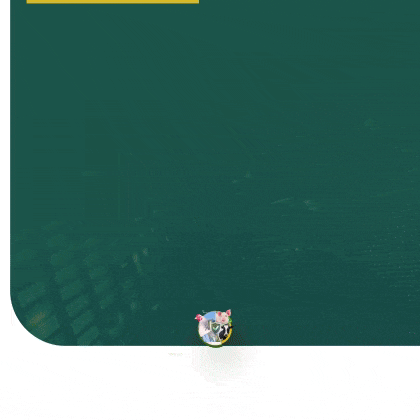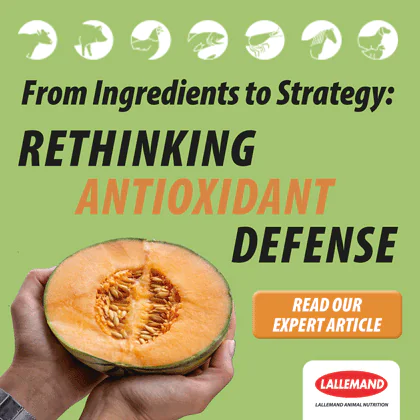Navigating Poultry Nutrition in a Tropical Environment: Strategies Amid Unique Challenges
It is easy to romanticize the Caribbean’s climate—until you try to raise livestock in it. For poultry producers, heat stress is not a seasonal inconvenience; it is a year-round opponent.
Unlike temperate regions that experience predictable cycles of summer and winter, we contend with constant high temperatures and humidity. In Jamaica, the two primary rainy seasons—May and October—bring a predictable cascade of issues: reduced average daily gains, gut health challenges, and an increase in flushing requirements.
Added to this is the unique logistical, cultural and regulatory environment that Caribbean poultry producers operate in. Regulatory frameworks in CARICOM lean towards the European Union model, meaning some antibiotics are not as readily available for commercial animal production, indeed some integrators have even moved to full ABF operations.
To add another layer of complexity, feed ingredients cost over 30% more than in the USA or Brazil. As small players in the global market, we often have little choice but to accept what is available—whether or not it truly meets our needs.
This reality has forced us to be adaptive. We do not have the luxury of trial and error on a grand scale, nor can we afford to wait years for solutions. Instead, we have become early adopters of technologies that, in larger markets, would have been cautiously integrated over time.
Suppliers quickly realized that advanced enzymes, organic minerals, amino acids, pre- and probiotics, and phytogenic compounds would gain traction in the Caribbean—provided they were backed by solid science. These are not mere enhancements; they are essential components of our nutrition strategies.
Rather than being reactionary to heat stress problems the key lies in pre-emptive action, For example before the spring and summer months approach, start making incremental dietary adjustments; adapting diets and management strategies before the challenges arise.
Managing Heat Stress: More Than Just a Nutritional Problem
Indeed, because formulation does not happen in a vacuum as nutritionists, we must be aware of the role the physical environment plays. For example, in Jamaica, we have high bauxite soil. Why is this important? Because these soils are high in minerals that act as antagonists to other minerals, making the form of the minerals we use in our diet critical.
Indeed, I usually recommend a combination of inorganic and organic minerals in mineral premixes and as alternatives to antibiotics.
Think of managing heat stress like hosting an unwelcome guest—one that overstays its welcome and refuses to be ignored. But with the right strategies, it becomes less of a battle and more of a carefully orchestrated dance.
- Seasonal Formula Adjustments
Heat stress affects feed intake and digestion, so seasonal tweaks are critical. Electrolytes and organic acids and mineral oils help to control bacterial overgrowth and reduce gut inflammation. Adjusting nutrient density before birds exhibit signs of stress prevents cascading performance losses.
Additionally, the use of ionophore or bio-shuttle programme to control coccidiosis that occurs due to the high moisture levels that results from birds flushing due to high water intake.
- Tailored Mineral Management
Imported mineral premixes are not always compatible with our environmental conditions. Water sources in many Caribbean territories, particularly in limestone-rich areas, contain high levels of calcium. This alters mineral availability, requiring careful recalibration of trace mineral ratios to maintain optimal bird performance.
Now, let us dive into another critical issue: mineral selection. The Caribbean’s soils—whether the high bauxite soils of Jamaica or other volcanic types in the region—are unique. They are high in certain minerals like iron and aluminum, which can create antagonisms with essential nutrients such as copper, zinc, and manganese.
The tricky part is that we do not source these minerals locally. Instead, we purchase premixes from companies based in the USA and Europe. These suppliers often use formulas that work well in their own regions, but they do not always account for our soil’s idiosyncrasies.
Because we are a small market, these premix companies tend to impose what works for them, assuming one size fits all. They overlook the fact that our high-mineral soils can disrupt the delicate balance of mineral uptake in poultry. For example, high levels of iron in Jamaican soils can reduce copper absorption—essential for haemoglobin formation and enzyme function—while aluminium may interfere with the uptake of calcium, phosphorus, and magnesium.
When premixes are designed without these local factors in mind, our birds can end up with imbalances that hurt their growth and overall health.
This is not just an academic issue. The misalignment between imported mineral mixes and our soil conditions means that on-the-ground adjustments become essential. We often have to fine-tune the levels of added minerals and sometimes even adjust the Ca:digestible P ratios to counteract the natural antagonists present in our environment. It is a constant balancing act, and one that underscores just how unique our situation is.
- Implications for Poultry Health and Productivity
Maintaining a proper mineral balance is critical for optimizing poultry health and productivity. Disruptions caused by mineral antagonism can lead to poor growth, compromised immune function, skeletal deformities, reduced egg quality, and metabolic imbalances.
Proper dietary formulation, monitoring mineral interactions, and adjusting supplementation strategies are essential to mitigating these risks and ensuring optimal poultry performance.
- Proactive On-Farm Adjustments
Heat stress mitigation is not confined to the feed mill. Lighting schedules, ventilation adjustments, and hydration strategies play a vital role. Hydration is particularly critical—probiotic-enhanced hydration products help maintain gut integrity and mitigate the impact of heat stress.
Former sugarcane fields, for instance, present a challenge due to residual nitrites in the soil. This becomes an issue after heavy rains or when there is a drought and there is a heavy reliance on well or irrigation water heavy in Total Dissolved Solids (TDS).
Knowledge of this possible water contamination means careful water management and the selection f the right water additives that will not encourage bacterial growth in the waterline. It also means water acidification to boost the sanitation power of chlorination and the flushing of waterlines throughout the day.
Precision Nutrition: Optimising Feed for Heat Stress
Nutritional interventions for heat stress must be both science-driven and economically viable. It is tempting to focus on formulation costs alone, but in a vertically integrated system, the goal is not just a better feed conversion ratio (FCR)—it is maximizing revenue per kilogram of meat produced.
While the list of nutrient interventions that have proven effective in reducing the impact of heat stress, here are some strategies have proven effective:
- Electrolytes & Betaine: Maintaining water balance is critical in high temperatures. Betaine, in particular, has shown promise in reducing heat-induced dehydration by improving cellular water retention.
- Amino Acid Optimisation: Heat stress alters amino acid metabolism, with methionine and arginine playing crucial roles in stress tolerance. Strategic adjustments help maintain immune function and overall resilience. The inclusion of amino acids that have a creatine sparing effect and those linked to the production of serotonin has been a go-to option that I have employed over the years to combat the dip in weight gain associated with heat stress.
- Calcium & Phosphorus Balance: In layers, heat stress reduces calcium absorption, leading to thin-shelled eggs. Larger particle-size calcium sources, such as limestone, provide a sustained release of calcium, mitigating this issue.
- Pre & Probiotics: These both go hand in hand with one acting as a substrate for the other. There are a multitude of products available, but I find that one of the best prebiotics I have tested were either seaweed based or yeast cell wall based. These worked in conjunction with multi-strain probiotics to modify the microenvironment of the gastrointestinal tract.
- Sodium Bisulphate & Sodium Bicarbonate: One of the other dietary changes that has proven effective over the years is increasing the dietary sodium levels to encourage the birds to drink more water, while switching sodium sources from Sodium Chloride to Sodium Bisulphate or Sodium Bicarbonate. I personally prefer sodium bisulphate because of its role in reducing dietary pH and its ability to keep litter dry.
The role of these additives is not only to improve digestibility but to minimize the negative effects that occur when birds reduce their feed intake. The reality is that birds under heat stress do not eat as efficiently. If we fail to adapt their diets accordingly, we risk exacerbating performance losses rather than mitigating them.
Looking Beyond the Basics: Innovation in Heat Stress Management
The unique production conditions of tropical and sub-tropical environments mean that global solutions often require local adaptation. A feed additive or management practice that performs well in temperate climates may not yield the same results under our conditions.
Another crucial consideration for nutritionists in small island states is the return on investment. Whereas I have highlighted some of the strategies I have used in the past to overcome heat stress these strategies are dynamic in nature.
It is tempting to base decisions solely on formula costs, but in a vertically integrated company, overall profitability must be assessed. This means looking beyond feed conversion ratio (FCR) and average daily gain (ADG) to determine how much revenue is generated per kilogram of meat.
Additionally, the limited availability of alternative ingredients necessitates forward planning of the ingredients critical for reducing heat stress and improving gut health. Nutritionists in the region must forecast inventory and potential formula adjustments for the entire year.
Access to laboratory services for microbiological and mineral assessments is also limited, making tools such as near-infrared (NIR) machines essential. Establishing a robust quality control protocol—including in-house testing for mycotoxins, bacterial contamination (such as coliforms), and mineral content in water—is crucial.
The laboratory at the feed mill, or even within the company, must be capable of conducting a variety of tests. While rapid tests are sometimes questioned for their accuracy, they can be validated by cross-checking results with internationally accredited VSD-certified laboratories, effectively serving as a quality check on quality control systems.
Even when testing feed for birds, it is best to conduct trials at a research facility before implementing any formulation changes on a larger scale. This approach enabled me to successfully develop a nutrition programme that effectively mitigated heat stress.
While the Caribbean presents an extreme example of environmental challenges in poultry production, many of the principles I have outlined can be applied to systems in Latin America, the USA, Europe, the Middle East, and Africa.
At all times, we must balance profitability with sustainability. This requires focusing on return on investment while maintaining a long-term perspective on the industry. We must anticipate regulatory changes and evolving consumer demands to ensure the longevity and resilience of the poultry sector.
One of the most effective ways to evaluate new nutritional strategies is through controlled experimental units. In a region where some producers think evaluating new additives by comparing how one house or farm compares to a control farm or house is acceptable, it is crucial to control for environmental variables.
Rather than comparing one poultry house to another—where external factors like ventilation and stocking density influence outcomes—small experimental pens offer a more reliable method of assessment.
Were cost might be an issue, using small portable PVC research cages that are distributed throughout a tunnel ventilated poultry house, for instance, we can minimize environmental effects and obtain a clearer picture of an ingredient’s true impact. This is particularly important when evaluating novel feed additives, where even minor performance differences can have significant economic implications.
Strategic Planning: The Key to Long-Term Success
For nutritionists in these tropical and sub-tropical regions, success is not just about optimizing feed formulas—it is about strategic foresight. We must forecast ingredient availability and potential formulation adjustments for the entire year to ensure that 1. We get a very favourable price based on economies of scale and 2. The product is available when it is time to make our seasonal adjustments.
Furthermore, because there is often limited access to laboratory services that offer wet chemistry analysis, quality control becomes even more critical. That’s why having a fully equipped laboratory within the company is important.
Near-infrared (NIR) machines, for instance, have become indispensable tools for evaluating raw material consistency and mycotoxin contamination. I have used both benchtop and portable options, and based on my evaluations, I have found the functionality and freedom offered by portable, pocket-sized NIR devices to be invaluable in my toolbox of solutions.
Small microbiological plate counters and rapid-testing ELISA-based mycotoxin detectors are increasingly becoming inexpensive options. Establishing a robust quality control protocol and having your own means of testing for mycotoxins, bacteria, and the mineral content of water is crucial.
This means that the company must be able to perform a multitude of rapid tests, which can then be validated with certified laboratories internationally.
In a market where margins are tight and external pressures are high; nutritionists must adopt a holistic approach—balancing scientific precision with real-world constraints.
Final Thoughts: The Role of the Nutritionist in a Changing Climate
Poultry nutrition does not exist in a vacuum. It is a dynamic, ever-evolving field that must account for environmental, economic, and regulatory pressures. As the global climate continues to shift, the lessons learned in the Caribbean—where heat stress management is a necessity rather than an occasional challenge—will become increasingly relevant worldwide.
As nutritionists, we do not just formulate diets; we manage biological systems, optimize resource utilization, and ensure long-term sustainability. The strategies outlined here are not just theoretical—they are the result of years of experience, adaptation, and problem-solving in a challenging production environment.
Ultimately, the question is not whether we can manage heat stress effectively—it is whether we can do so in a way that enhances productivity, improves animal welfare, and ensures the long-term viability of the industry. And in the Caribbean, we have been answering that question for decades.












